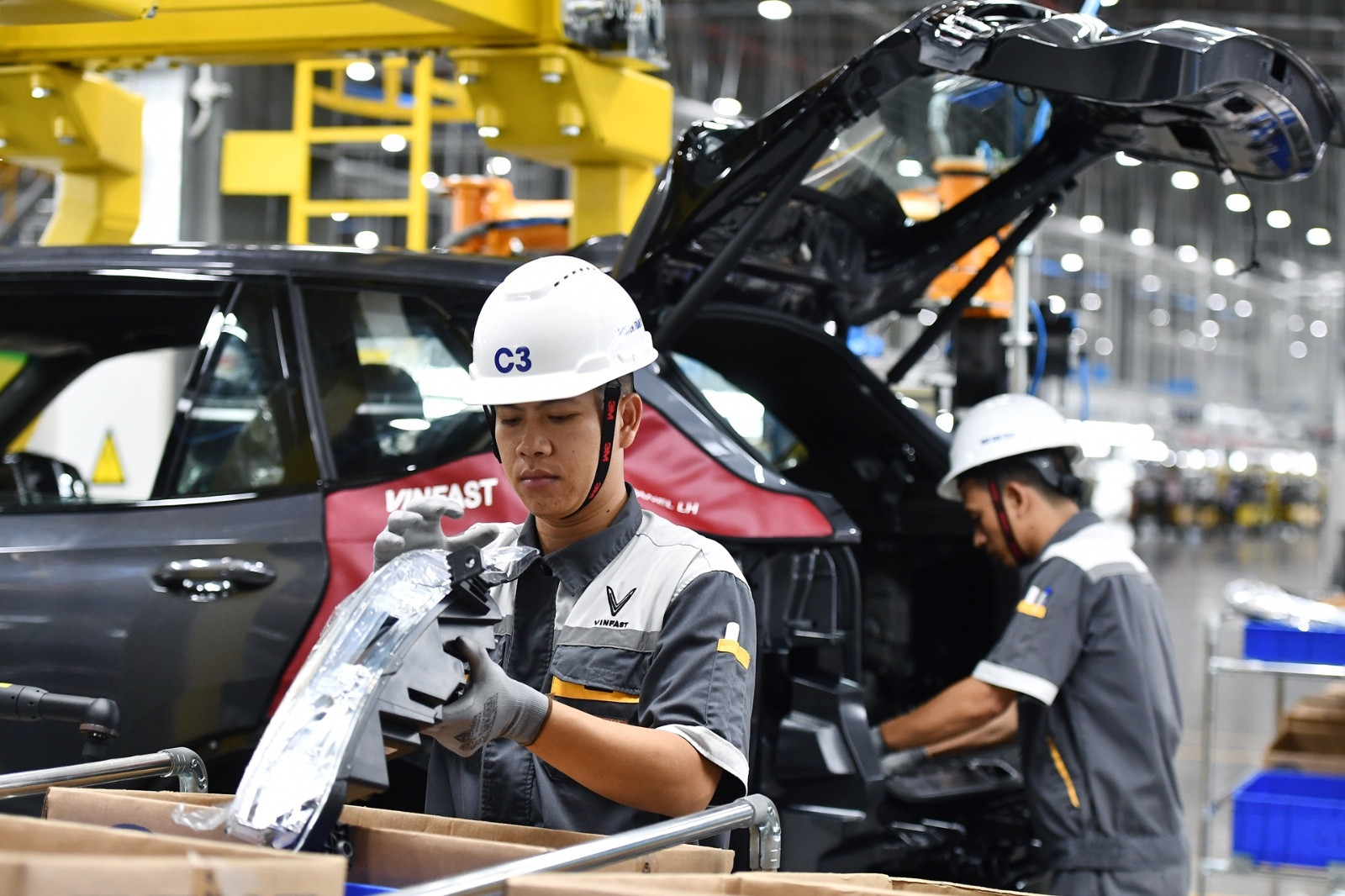Vietnam's private sector has grown substantially in recent years, becoming a driving force behind the nation’s economic development.
However, while the country boasts a large number of private businesses, the share of enterprises with regional or international scale remains modest. Significant change is still needed for the sector to truly become a “lever for national prosperity.”
Small scale, limited support policies

Vietnam is home to over 940,000 active private enterprises, employing more than 80% of the national workforce.
The country has also produced several U.S. dollar billionaires, with some making it into the global top 500, demonstrating the rise of its leading private corporations.
As of March 29, Vietnam has five USD billionaires, according to the latest Forbes update:
Pham Nhat Vuong, Chairman of Vingroup and CEO of VinFast, saw his fortune surge to USD 7.5 billion, ranking 414th globally. Just weeks earlier, he was at 502nd with USD 6.7 billion, and at 839th in January.
Vuong is now significantly wealthier than former U.S. President Donald Trump, who had USD 4.8 billion and ranked 722nd as of March 29.
Other Vietnamese billionaires include Nguyen Thi Phuong Thao (Vietjet) with USD 2.7 billion, Tran Dinh Long (Hoa Phat) with USD 2.3 billion, Ho Hung Anh (Techcombank) with USD 1.9 billion, and Nguyen Dang Quang (Masan) with USD 1 billion.
Several private groups - Masan with consumer goods, VinFast with electric vehicles, Vietjet, and Hoa Phat in steel - have made notable strides in the domestic and even international markets. Yet, such success stories remain limited.
Despite their numbers, most Vietnamese private enterprises are still small to medium-sized, with limited financial, technological, and managerial capacity. Their operations are heavily focused on the domestic market.
Vietnam’s private sector accounts for 45–50% of GDP, still lower than Thailand’s 57% and Malaysia’s 60%. It also lags behind in regional influence and global competitiveness.
Learning from regional giants
Thailand has major private conglomerates like Charoen Pokphand Group (CP Group), operating globally in agriculture, food, and retail. Its founder, Dhanin Chearavanont, and family have a combined fortune of USD 37 billion, with Dhanin alone worth USD 15 billion.
ThaiBev is valued at USD 13 billion, and its chairman Charoen Sirivadhanabhakdi holds assets worth USD 11.4 billion.
In Singapore, although state investment fund Temasek Holdings owns 29% of DBS Holdings, the banking giant is still considered a private-sector force, with a market cap of USD 99 billion. Wilmar International, with capital of USD 16 billion, is led by Kuok Khoon Hong (USD 3.4 billion in personal wealth), part of the influential Kuok family, which also holds major assets in Malaysia.
In Malaysia, conglomerates like Petronas and Genting Group illustrate the scale and reach that Vietnamese enterprises have yet to match.
The need for a breakthrough
While Vietnam’s private sector is a key economic driver, most firms still face technological, capital, and governance constraints compared to regional peers.
Many firms remain overly reliant on the domestic market of 100 million people. For example, Masan Group, though dominant in Vietnam’s retail and consumer sectors (Omachi, Chin-su, WinMart), has been slow to scale regionally.
VinFast, backed by billionaire Pham Nhat Vuong, has ambitious plans to export EVs to the U.S. and Europe, but faces stiff competition from giants like Tesla and Toyota, particularly in technology and market positioning.
Even Techcombank, among the top private banks in Vietnam, struggles to match the technological and financial prowess of foreign banks. Thaco, led by Tran Ba Duong, has exported vehicles within the region but still lacks international scale.
Government support policies for private enterprises remain inconsistent and insufficient. While programs exist, corporations like FPT or Sovico Group largely pursue overseas opportunities independently.
According to Dr. Nguyen Dinh Cung, former head of the Central Institute for Economic Management (CIEM), institutional barriers are a major hindrance. A new, clear strategy is essential - one that positions the private sector as the core force in industrialization, modernization, and enhancing national competitiveness.
Thailand, Singapore, and Malaysia have long-term policies enabling their corporations to expand globally. Vietnam lacks breakthrough mechanisms to support a similar rise.
Unlocking the private sector’s full potential
Le Duy Binh, Director of Economica Vietnam, suggests that Vietnam must nurture an entrepreneurial spirit, reinforce economic freedoms, and ensure businesses can operate freely within the bounds of law.
Such strategic policies would strengthen property rights and freedom of enterprise, while shifting regulatory governance toward market-based principles over administrative intervention.
Vietnam’s legal system should evolve to not only regulate but also foster development, unblocking capital flows, and creating a safe, low-cost, internationally-aligned business environment.
The law must incentivize R&D, technology investment, and innovation. Legal mechanisms should support high-risk, high-reward activities that improve productivity and global competitiveness.
Encouraging public-private partnerships (PPP) in sectors like infrastructure and renewable energy would enable firms like Sovico or Vingroup to expand further. A healthy business ecosystem is not only crucial for domestic growth, but also serves as a launchpad for regional and global reach.
Manh Ha